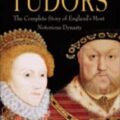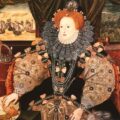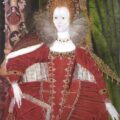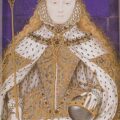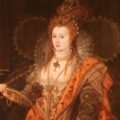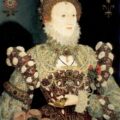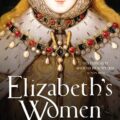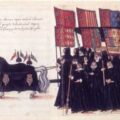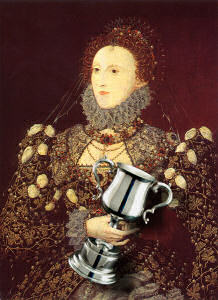
I thought it would be good to move away from the myths, rumour and scandal that surround this great lady, and, as Rochie said in her comment a few weeks ago, look at Elizabeth I’s achievements, after all, isn’t that the way she should be remembered. Let’s give Good Queen Bess the credit she deserves!
Elizabeth Files visitor, Jenny, commented a few weeks ago about the Festival of History debate back in 2007 at Kelmarsh Hall. At this debate, authors and historians, Sarah Gristwood, Alison Weir and Martyn Downer championed the causes of Queen Elizabeth I, King Henry VIII and Queen Victoria for the public to decide who exactly was England’s Greatest Monarch. According to Jenny, Henry VIII didn’t get a look in – Queen Victoria won on the Saturday and Elizabeth I won on the Sunday. Interesting!
So, let’s look at what Sarah Gristwood used in her argument for Elizabeth I:-
Elizabeth I’s Key Achievements
Sarah Gristwood said:-
“The England she inherited was described by one of her own agents as “a bone between two dogs” – France and Spain. Few believed then that she (a mere woman, with a disputed claim) could hold the throne without tying the country to some greater power. Instead, after 45 years of solo rule, she left a realm sure of its place in the world, with the confidence only half a century of stability could give. One that had seen the expansion of its interests, the securing of its borders, and the regularisation of its currency, as well as the great flowering of the Renaissance.”
Elizabeth I’s Personal Qualities
Sarah Gristwood said:-
“Brave, resourceful, charismatic, clever and extraordinarily cultured; a musician, linguist and poet. A terrible youth (her mother executed on her father’s orders; her own life threatened by her sister) unexpectedly bred in her a kind of humanity. She was instinctively merciful; and reluctant, until forced to it, to involve England in the wars of other countries. She counted the greatest triumph of her reign to have ruled with her people’s love; and though she could be vain, she was never vain enough to put her own wishes, her own dynasty, above the needs of her country.”
Elizabeth I’s Global Impact
Sarah Gristwood said:-
“The adventures of exploration and trade that later gave Great Britain its prosperity began in Elizabeth’s reign, as did the cultural achievements (Shakespeare) on which our reputation in the world still partially depends. She made England a major player in Europe – indeed her support for the Netherlands Protestants, and the Armada victory, made possible a Protestant Northern Europe. Promising to preserve her people from “oppression and wrong”, Elizabeth was a ruler whose own refusal “to open windows into men’s souls” paved the way for the religious settlement, and the secular state, that we still know today – a model that has since been followed by other countries.”
Elizabeth I’s Legacy
Sarah Gristwood said:-
“Without Elizabeth we would not be who we are today – children of a proud (and a Protestant) nation. The Virgin Queen (our first true patriot, after medieval monarchs who treated England as a piece of personal property) is a vital part of our national mythology. Women, from Queen Victoria to Margaret Thatcher, owe her a particular debt. It’s hard now to realise quite how unnatural her female rule at first seemed to her contemporaries. Before Elizabeth, no woman had ever successfully reigned over the country. After her, no-one could ever again relegate women to the sidelines so easily.”
Did Sarah Miss Anything Out?
I actually find it hard to believe that Elizabeth won over Henry VIII, although I agree that she should have, because if you look at Alison Weir’s arguments for Henry they are rather compelling – see http://news.bbc.co.uk/2/hi/uk_news/magazine/6936537.stm#graphic for all of the arguments put forward by Sarah, Alison and Martyn. Perhaps Sarah put forward a few more arguments in the actual debate.
In one of my first posts on the Elizabeth Files, I listed Elizabeth’s main achievements as being:-
- Becoming queen
- Defeating the Spanish Armada
- Carrying on her father’s work with the Navy and making England a strong naval power
- Defending England from the Scots and turning Scotland into an ally
- Increasing literacy
- Expanding England overseas
- Founding the Church of England as we know it today through her religious settlement
- Raising the status of England abroad
- Surviving and defeating the plots and revolts against her
- Helping the poor
- Ruling as Queen in her own right
- Her promotion of the arts
I would now add to that:-
- Turning England round from a poor country riddled with problems to a strong and prosperous country
- Her patronage of science and the Renaissance way of thinking
- Her ability to pick excellent advisers like William Cecil
- Her understanding that a monarch needed to work with advisers and Parliament, to be able to rule successfully
- Showing the public and other countries that a woman could rule successfully without a man by her side
Have I missed anything out?
Elizabeth I – England’s Greatest Monarch
Some people have questioned whether Elizabeth’s reign was really a Golden Age and pointed out that her reign has a great many failures e.g the Irish problem. Historian David Loades, in “Elizabeth I”, said of Elizabeth:-
“She failed to deal with two issues of crucial importance which were to derail the regimes of her successors. Having encouraged the gentry to adopt a higher and higher profile in government, she failed to find a satisfactory definition of the constitutional relationship between crown, lords and commons, although several models were offered to her by William Cecil in the course of her reign. By refusing to define it she protected her prerogative from formal limitation, but left it vulnerable to attack, as was already becoming apparent before she died.
Secondly, she conspicuously failed to tackle the problem of inadequate revenue. By muddling along, and improvising from hand to mouth, she managed to survive; but the consequence was that nobody faced the fact that the crown needed a regular and substantial taxation income, even to conduct its normal peacetime operations, never mind to wage war. It was as much ignorance as extravagance or ill-will that caused the financial crises of the early Stuarts and for that ignorance Elizabeth was to blame. Her inability to act promptly and decisively was thus more damaging at home than it was abroad. It was caused directly by her fear that parliament, and particularly the House of Commons, would be empowered to exercise a measure of control which she believed should belong to herself alone.
Elizabeth chose for herself the motto Semper Eadem (Always the Same) and in most respects that consistency served her well, both as a person and as a ruler. It also meant an unwillingness, even an inability, to embrace change. It could be said that she was so concerned to remain in charge of the ship, and to avoid the icebergs of Spanish and papal hostility, that she failed to spot the other unobtrusive rocks lying in her path. She was not on the bridge when the ship went down.”
I respect Loades and think that he makes a great point her, but despite her failings I do think that Elizabeth deserves the title “England’s Greatest Monarch”. She was the first woman to rule England successfully in her own right and her reign is quite rightly known as the Golden Age, when you compare it to those before her.
The reigns of Henry VIII, Edward VI and Mary I had depleted England’s resources, yet Elizabeth handed over to James I a country that was prosperous, powerful and a big player in Europe. This was an amazing achievement considering that she was a woman, living in a man’s world, that she was illegitimate and that she was just 25 when she came to the throne. She had no role model to copy, she was the one breaking the mould and I think we have to got give her credit for what she did for England and for women – she was the original source of girl power!
So, take your trophy, Elizabeth, you deserve it!
What Do You Think?
But what do you think Elizabeth I’s main achievements were? What arguments would you use to champion her cause and make her known as England’s Greatest Monarch?
